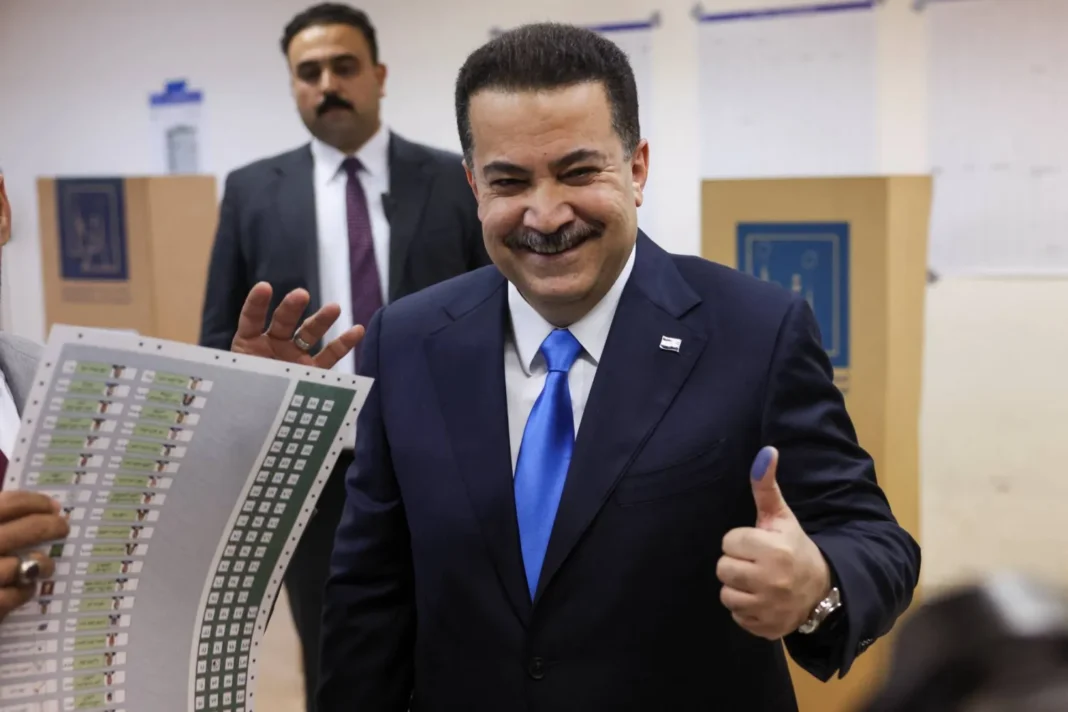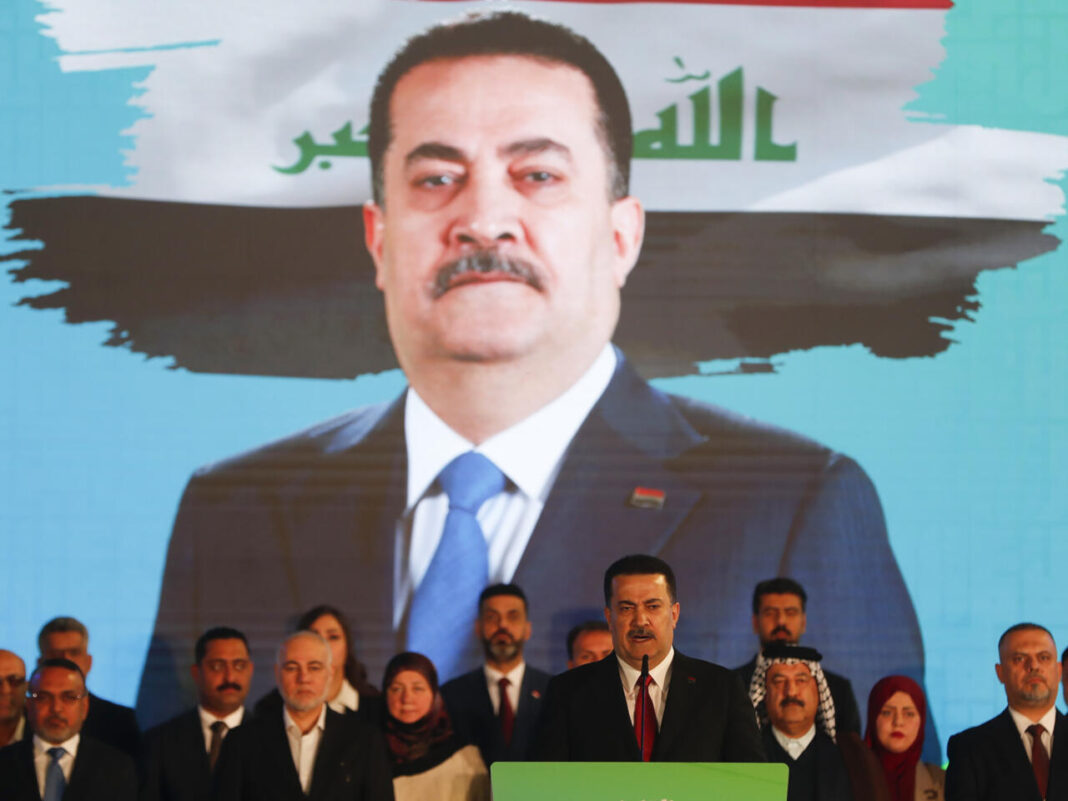Al-Sudani’s Parliamentary Success became clear as Iraqi Prime Minister Mohammed Shia Al-Sudani, along with nine ministers from his current government, retained their seats for a second term. They joined 86 other MPs from the current sessions and seven from previous ones, consolidating experience in parliament. This result strengthens Al-Sudani’s influence and his coalition’s parliamentary strategy.
In Baghdad, 17 MPs kept their seats. The group included PM Al-Sudani, Minister of Labour and Social Affairs Ahmed Al-Asadi, and Minister of Communications Hiyam Al-Yasiri from the Al-Ima’ar Wal Tanmiya (Reconstruction and Development) Coalition, which won 71 seats overall. Observers said the retention of these figures signals political continuity in the capital.
Basra returned 11 MPs, including Minister of Electricity Ziad Ali Fadel from the State of Law coalition. Dhi Qar re-elected five MPs along with Minister of Transport Razzaq Muhaibis from the Badr Organization. Maysan retained four MPs out of ten seats, showing regional support for experienced lawmakers.
Smaller provinces also maintained representation. Muthanna re-elected one MP out of seven, and Najaf returned one MP alongside the Minister of Agriculture. Karbala brought back four MPs from 11 seats, Babil five from 17, and Wasit two from 11. Al-Anbar returned four MPs from 15, Diyala five from 14, and Saladin three MPs, including Minister of Education Ibrahim Namas.
In Nineveh, MPs and Minister of Defense Thabet Al-Abbasi kept their positions from 31 available seats. Kirkuk re-elected four MPs alongside Minister of Planning Mohammed Ali Tamim from 12 seats. In the Kurdistan Region, Erbil retained three MPs, al-Sulaymaniyah four, and Duhok four, maintaining regional political continuity.
Despite strong campaigns, four ministers lost their parliamentary bids. They included Minister of Youth and Sports Ahmed Al-Mubarqaa, Minister of Oil Hayyan Abdulghani, Minister of Tourism and Antiquities Ahmed Fakkak, and Minister of Migration and Displaced Ivan Faiq Jabro. Their losses indicate shifting voter priorities and competitive races across provinces.
According to preliminary results from the Independent High Electoral Commission, PM Al-Sudani’s Al-Ima’ar Wal Tanmiya Coalition won the highest votes in Baghdad and seven other provinces. Moreover, analysts say this performance boosts Al-Sudani’s parliamentary influence and makes his coalition a leading force in shaping Iraq’s legislative agenda. Consequently, Al-Sudani’s Parliamentary Success reflects voter trust, experienced leadership, and effective coalition strategy
The election outcomes show political continuity in key provinces. They highlight strategic victories for the Reconstruction and Development Coalition. Experienced ministers and MPs continue to shape Iraq’s legislative direction. Al-Sudani’s Parliamentary Success underscores the Prime Minister’s pivotal role in Iraq’s next phase of governance



